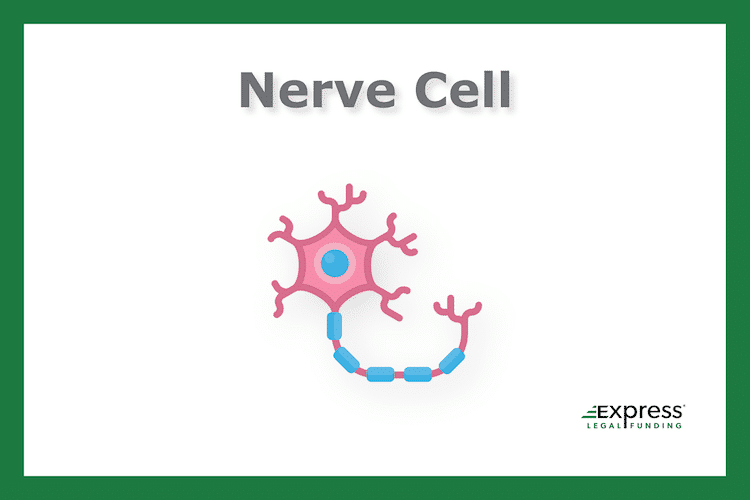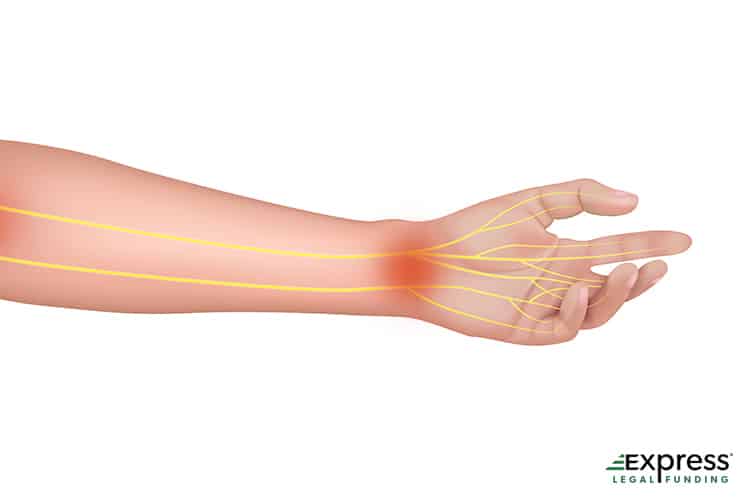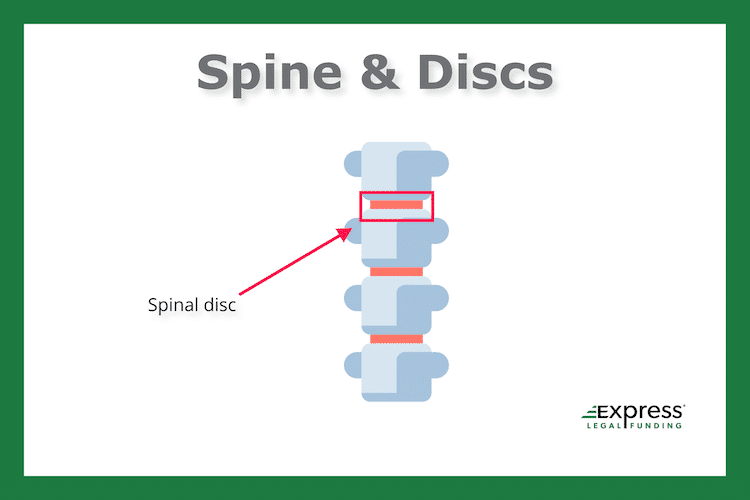
It’s conventional wisdom that if you want to remain healthy and free of chronic pain, you should avoid situations that pose risks of serious injury.
Regardless of how dangerous some situations are, it does not always make all unsafe situations easy to avoid.
Rarely is life ever that simple as we can’t avoid some risks and dangers entirely out of our control.
There is one classic example of this unfortunate reality: We can suffer injuries caused by someone else’s negligence, which is inherently beyond our control. One of the most common examples of incidents beyond our control is auto accidents.
Nowadays, almost everyone has a car or similar motor vehicle that they use to traverse the roads. While cars and trucks are essential, they come with an inherent risk since these vehicles are essentially 3,000-plus-pound bullets.
As a result, when modern vehicles collide with one another, it can cause severe damage to everything and everyone involved.
Similar to most dangerous events, some car accidents are more severe than others and can do significantly more damage to the people involved. No two are the same.
Although we know that many potential injuries could arise from a car accident, like broken bones and lacerations, most people do not consider whether a car accident could cause nerve damage to its victims.
Not to mention a proper awareness of what goes into causing nerve damage in the first place.
Car Accidents and Nerve Damage
In this article, we will begin by explaining how nerve damage is one of the most severe injuries we can sustain, and it can radically change our lives in a quick instant.
That will lead us to the overarching question we will address in this article: If and in what ways can you suffer nerve damage from a car accident?

Then finally, how can the different types of nerve damage affect a personal injury case?
The good news is that we will answer several questions that explain how and why nerve injuries, personal injury claims, and car accident settlements are connected.
So let’s begin.
What is Nerve Damage?
Nerve damage is a frightening injury concept. Most everyone has heard that it is a bad injury, but most people have little knowledge of what nerve damage actually is.
Simply put, nerve damage is any injury that damages your central nervous system.
However, to better understand what that means, we need to understand what the human body’s nervous system entails and how it is more expansive than people realize.
Our nervous systems reach the farthest corner of our bodies and control virtually everything we do.
Without a central nervous system, our brains would be useless gray matter trapped in our skulls, incapable of movement, feeling, or any action necessary to our lives.
Fortunately, the nerves within our nervous system are generally well-protected and do their job, so we can go about our daily lives without worrying that our bodies will lose this function.
What are the Types of Nerves?
There are three types of nerves that are responsible for different aspects of our function.
The nerves in the human body can be divided into the following three categories:
- Autonomic Nerves: Autonomic nerves are part of the automatic nervous system. These nerves are responsible for our involuntary and partially voluntary bodily functions. They regulate functions we do not have to focus on, but we depend on being activated. Some examples of what automatic nerves control include: blood pressure, digestion, body temperature, and heart rate.
- Motor Nerves: Motor nerves are the nerves we use to move our bodies, which are required to move our extremities and limbs. Motor nerves receive information from the brain that our body executes by manipulating the appropriate muscles and tissues.
- Sensory Nerves: Sensory nerves are a series of nerves that accept input from touch and stimuli that our brain processes to create an appropriate response. For example, these nerves are responsible for our pain responses and will identify pain so our bodies know to react accordingly.
These three types of nerves are essential to a healthy human body and cannot be neglected if you want to retain the full functionality of your body.

Unfortunately, like the rest of our bodies, our nerves are not invincible. The brain and nervous system are the most fragile part of the body and are very susceptible to damage.
What are the Symptoms of Nerve Damage?
Nerve damage is the most common issue inhibiting the nerves and can cause many symptoms that make basic movement excruciating. Nerve damage can manifest with any of the following symptoms:
- Inability to sense chest pain.
- Hyperhidrosis (excessive perspiration) or anhidrosis (lack of sweat).
- Lightheadedness.
- Dry eyes.
- Eye pain.
- Dry mouth.
- Constipation.
- Bladder dysfunction.
- Sexual dysfunction.
- Tinnitus (ear ringing).
Nerve damage is more common than people realize and can occur from otherwise common injuries.
Most nerve damage people suffer occurs because of underlying medical conditions or a significant physical injury that compromises our health.
These symptoms after a major illness or traumatic injury could be signs of nerve damage and require immediate medical attention.
Still, the big question, which we will now answer below, is whether car accidents are among the causes of nerve damage.
Can Car Accidents Cause Nerve Damage?
Yes, car accident collisions can cause many severe injury types that affect the nerves and cause lasting damage that impacts your quality of life.
The key factor of if and where nerve damage occurs is what part of the body is injured in auto accidents.
Certain body parts are more susceptible to nerve damage than others, and our centralized nervous system primarily surrounds the vertebral column. This soft tissue area tends to experience significant trauma during motor vehicle collisions.

What are the Most Common Nerve Injuries from Car Accidents?
The three most common types of nerve injuries and symptoms of nerve damage resulting from car accidents include whiplash, herniated discs, and pinched nerves.
#1 Whiplash Injuries
1. Whiplash: Whiplash is the most common injury in a motor vehicle accident because the momentum of the collision is all it takes.
The neck and head are highly vulnerable to gravitational force, exacerbated when a vehicle is struck by another moving faster or as fast as yours. The sudden force, typical of rear-end collisions, causes the head to jolt back and forth quickly, straining the muscles around your neck.
The whiplash back and forth motion can cause injury to the bones in the spinal column, and the discs those bones protect, including ligaments, nerves, and muscle tissue.
This injury and swelling to the small region can lead to you experiencing compressed nerves in your neck.
Compressed nerves can be the root source of chronic pain and inhibit your neck’s full range of motion, which can lead to muscle weakness and other long-term symptoms of nerve damage if left untreated.
Seatbelts Can Make Whiplash Injuries Worse
Ironically, the risk of whiplash is increased by the legally required seatbelt. By wearing a seatbelt, most of your upper body is restrained, with the chest, neck, and shoulders remaining free.
So if you have a rear-end car collision while wearing a seatbelt, the unrestrained parts of your upper torso and body that remain free will suffer the brunt of the force leading to more severe whiplash.
However, this is not a reason not to wear a seatbelt, which is the law in 49 out of 50 US states. Only New Hampshire does not have seat belt laws.

#2 Herniated Discs
2. Herniated Disc: A herniated disc is a common injury accompanying whiplash and often affects the lower back in motor vehicle collisions.
The twisting and jostling during a high-impact collision can strain the vertebral column and force a spinal disc out of alignment.
These spinal discs are critical as they act as our spine’s “shock absorbers.”
The human body has 23 spinal discs, and each one is between two of the spinal bones and is meant to act as a buffer to protect your spinal cord from damage.

However, when your discs become damaged, they can bulge and herniate, which causes the disc’s padding to press against the nerves on the exterior of the spine.
Bulging and herniated discs can cause extreme pain by pressing against and causing pinched nerves.
A herniated disc can cause chronic pain if left untreated following a car accident, leading to permanent damage.
The following symptoms are common for people experiencing nerve pain from a herniated disc:
Symptoms of Herniated Disc Nerve Damage:
- Burning sensations.
- Sharp shooting pain.
- Sharp shooting pain down the leg (sciatica).
- Numbness in the affected area.

#3 Pinched Nerve
3. Pinched Nerve: A pinched nerve is a compressed nerve caused by many different injury types. When it comes to car accidents, both the whiplash and herniated discs can result in pinched nerves.
So although it is an injury, the pinching that results in the compressed nerve is a symptom or complication and not the primary injury, as it is often the result of the inflammation (swelling) from whiplash or herniated disc.
Inflammation is our body’s natural response to injury. However, it can add pressure to and compress the nerves, which causes significant pain.

Common Car Accident Injuries Can Result in Symptoms of Nerve Damage.
Essentially, the injuries common to motor vehicle accidents are high-risk for nerve damage and could severely affect your health. Car accident injuries can be unpredictable since there are so many variables that might arise.
A two-car collision could quickly become a four-car pile-up or force your car into an environmental hazard. Every new impact increases the chances of serious injury, including many types of nerve damage.
These risks skyrocket if you have a condition predisposed to nerve damage like diabetes.
Nerve damage can cause severe pain that borders crippling, depending on its severity. The biggest problem is that most nerve damage goes undetected since there are no outward signs, and the pain is usually attributed to lingering trauma from the accident.
That is why you must seek medical attention after a motor vehicle accident so you can determine whether you suffered nerve damage.
Otherwise, you risk going about your life with nerve damage that, if left untreated, could make the damage permanent and cause worse injuries and chronic pain that could have been avoided and not affected you for the rest of your life.
An injury that causes nerve damage can adversely affect your quality of life and cause pain and suffering.
Treatment plans for nerve damage can be expensive and generate high medical care costs billed to you: hospital visits, physical therapy, chiropractic care, and other treatment methods.
Can Car Accidents Cause Permanent Nerve Damage?
Yes, unfortunately, in more severe cases, a car accident can result in you having permanent damage to the nerves. Some permanent nerve injuries include the following:
- Spinal cord injuries.
- Neuropathy.
- Radiculopathy.
- Permanent muscle weakness.
- Other types of permanent nerve injuries.
Getting in a car accident that was not your fault but was caused by negligence is an unfair situation, especially when you are left dealing with the painful aftermath.
This painful reality is only made worse when you (and your insurance company, if you have one) have to pay for nerve damage treatments and other medical expenses.
Fortunately, the US legal system allows you to remedy these costly situations, so you don’t have to bear the financial burden indefinitely.
It starts with you holding the liable party accountable to pay for the financial loss you suffered due to the negligent actions that led to the car accident and your injuries.
What Should You Do Legally After a Car Accident Collision?
When we are injured because of someone else’s negligence, we retain the right to seek financial compensation for the injuries and damages caused to us by the party we have a personal injury claim against.
This ability for plaintiffs to sue defendants for car accident cases is made possible by and is incorporated into the civil justice system.
Speak to a Personal Injury Lawyer
From a practical perspective, we always recommend anyone who suffered a car accident and may be able to sue another party asks for legal advice from a car accident lawyer.
These auto accident-focused personal injury attorneys and their law firms can help you get compensation for the damages you incurred.
Personal injury claims are most common in state civil courts, with 300,000 and 500,000 claims filed annually.
Personal injury and car crash lawsuit claims are designed to compensate the car accident victims for the financial harm caused to them in situations where one person’s negligence resulted in the plaintiff’s injuries.
The key to a personal injury claim’s success is that your law firm proves the defendant was at fault and demonstrates the severity of your injuries and damages.
Motor vehicle accidents are the most common type of personal injury claim and are well-known litigation.
Prove Fault of the Other Driver
The concept of “fault” is a common factor in civil cases and revolves around proving that the situation could have been avoided had the defendant been more attentive.
In motor vehicle accidents, this usually means the defendant was not paying attention while driving or consciously engaged in reckless driving habits (i.e., speeding).
Proving fault can be challenging depending on when and where the accident occurred, how many cars were in the collision, and how many people witnessed it.
When there are multiple witnesses, or the accident occurred in an area with traffic cameras and other capture devices, it is easier to prove the defendant’s fault.
Aside from this, the damage to your vehicle can corroborate your claims that the other driver was responsible for the incident, though this is never guaranteed.

Your Car Accident Settlement Can Help You Recover the Costs of Nerve Injuries.
If fault is proven, your car accident settlement is determined by the expenses and damages you suffered from the collision. Still, your settlement amount is often subject to the insurance policy limit.
The most significant factor is your medical bills, which outline how much you had to spend to recover from your injuries. Collisions that cause nerve damage generate high medical costs and require you to maintain treatment for years after the collision.
Your overall medical expenses are always the baseline for the minimum settlement you can be awarded, though the amount can be increased depending on other negotiation points.
Regardless, the settlement is designed to help you recover from the financial burden of the accident.
Nerve Damage Settlement Amounts are Higher Because of High Medical Bills and Treatment Costs
While the settlement can be a significant amount of money, remember that these proceedings aim to reach favorable outcomes either by settlement or jury verdict to help you make a full recovery and not score a quick payday.
Some car accident victims fall into the trap of doing whatever it takes to win a lot of money and try to game the system and exaggerate their injuries to try and get a larger settlement than is fair and reasonable.
However, it can become counterproductive quickly and hurt them in the long run.
Lying About How Serious Your Injuries are Can Hurt Your Settlement
Honesty is vital to a successful claim since perjury and inconsistencies will hurt your chances of gaining goodwill from testifying before a jury, adversely affecting an otherwise simple personal injury settlement agreement.
Insurance adjusters know this and happily use it to their advantage while they attempt to lower your car accident settlement amount.
That said, we understand that your financial situation might be complicated, especially following a car accident and having to deal with extra costs and medical treatment.
Fortunately, there are options you can call upon to use in overcoming this obstacle while you deal with treating your nerve damage during the car accident lawsuit process.
Closing Statements on Nerve Damage from Auto Accidents
Car accidents are a common occurrence that can utterly disrupt your life, which is only made worse when the accident results in you suffering nerve damage.
Unfortunately, injuries that cause nerve damage and similar issues are prevalent in motor vehicle accidents. As a result, there is a good chance you will suffer some nerve strain injury like whiplash.
The pain caused by nerve damage can range from mild chronic pain to debilitating pain shooting down your lower back.
Although most cases are manageable and can be repaired with nonsurgical treatments like physical therapy and rest, it takes time to recover and regain the quality of life you had before the car accident.
The problem is that the cost of living continues on despite your car accident, and you must maintain your daily expenses, not including the unforeseen treatment costs.

We at Express Legal Funding understand this costly reality of injury lawsuits and know how important it is to seek legal advice and hire a car accident attorney to represent you on a contingency fee basis.
That is why and how we can offer pre-settlement legal funding to help you pay for daily living expenses while you wait on your claim.
Pre-settlement Funding for Nerve Damage Car Accident Cases
How pre-settlement funding works is that we can advance you with a sum of money you can use now as you see fit to pay for essential services and bills like housing or power.
In exchange, you would provide us with the right to receive a small portion of your potential claim proceeds (settlement or trial award money) once your claim ends.
The best part is that since the pre-settlement cash advance is made as non-recourse funding, it is not a loan, so you do not have to repay us a penny if you go to court but lose, meaning you end up recovering nothing at the end. That is risk-free for you.
So by getting legal funding, you can feel confident that you, at a minimum, will already receive the legal funding money for your claim even if you lose in the end.
So if you need financial help during your personal injury claim and don’t have enough money on hand to wait for your case out until the end, call us anytime to apply for pre-settlement funding and see if you qualify.
We strive to provide the best service to help more car accident injury plaintiffs.
(Missouri consumers, please be aware that the money we can provide to injured and damaged plaintiffs in Missouri is a recourse loan and, therefore, not risk-free advances with the lien on the potential case proceeds.
Pre-settlement loans in states like Missouri are recourse loans and must, technically, by law, be repaid. Express Legal Funding-Missouri, LLC is a loan company licensed to give these loans in MO.)
We hope you found this another helpful resource expertly written for readers across the United States and worldwide by the Express Legal Funding team. We are a leading national pre-settlement funding company based in Texas with clients across the United States.
